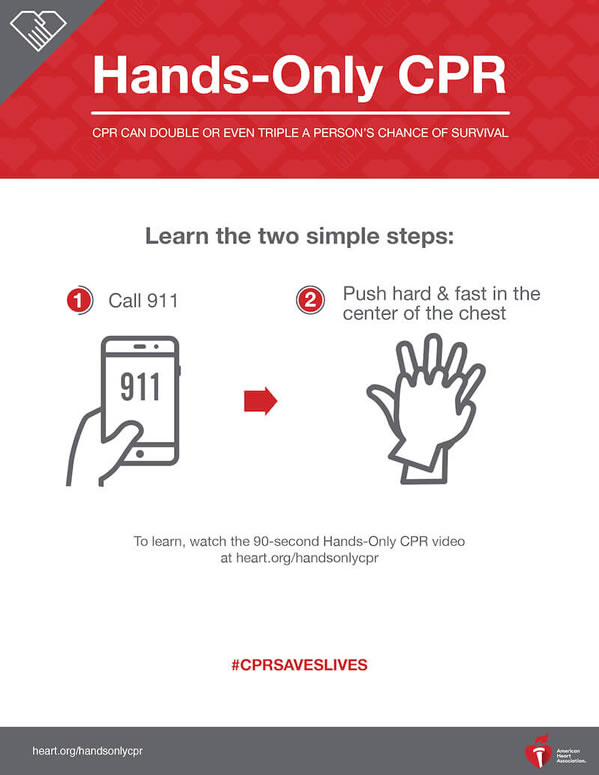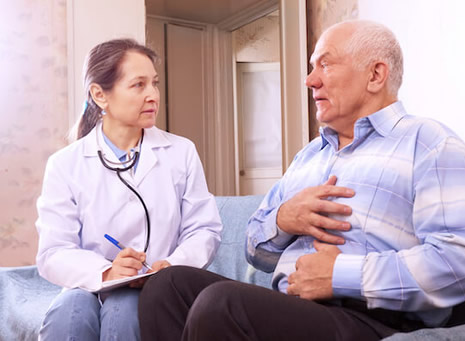Early Heart Attack Care and Hands-Only CPR
What is Early Heart Attack Care (EHAC)?
Early Heart Attack Care (EHAC) education teaches you to recognize the early signs and symptoms of a heart attack. Why? We want you to become an active bystander so you can save a life — even if it’s yours.
About 750,000 people in the U.S. have heart attacks each year. Of those, about 116,000 die. Many of these patients experienced early symptoms.
Learn the Early Signs & Symptoms
Someone might have one or more of these common symptoms:
- Feeling of fullness
- Pain that travels down one or both arms
- Jaw pain
- Excessive fatigue or weakness
- Anxiety
- Nausea or vomiting
- Back pain
- Shortness of breath
- Chest pressure, squeezing, aching or burning
When they start, they can be mild or come and go. Over time, the symptoms and pain become more intense. Stay alert and always pay attention to chest pressure.
Most heart damage can occur within the first two hours of a heart attack. EHAC encourages you to know the subtle signs of a heart attack and act on them before heart damage occurs.
Survive. Don’t drive. Call 9-1-1.
What are the Risk Factors?
These are the general risk factors. Be sure to discuss your risk with your doctor.
- Chest pain, pressure, burning, aching or tightness that may come and go
- A family history of cardiovascular disease
- High blood pressure
- Overweight or obese
- Sedentary lifestyle
- Using tobacco products
- Metabolic disease, diabetes or other illnesses
- For women, it can also include birth control pills, a history of pre-eclampsia, gestational diabetes or having a low birth weight baby
What is the Difference in Men versus Women?
Some heart attack symptoms can be different between men and women. Why does it matter? Women may be less likely to seek immediate medical care which can cause more damage to the heart.
- Men normally feel pain and numbness in the left arm or side of chest, but in women, these symptoms may appear on the right side
- Women may feel completely exhausted, drained, dizzy or nauseous
- Women may feel upper back pain that travels up into their jaw
- Women may think their stomach pain is the flu, heartburn or an ulcer
What are Atypical Presentations?
In an atypical presentation, the signs and symptoms are different. How? The patient may not complain about pain or pressure in the chest. Be alert for the following:
- A sharp or knife-like pain that occurs with coughing or breathing
- Pain that spreads above the jawbone or into the lower body
- Difficult or labored breathing
Information courtesy of American College of Cardiology Accreditation Services
EHAC Community Education Course
We are pleased to offer a virtual EHAC education course to the community, in conjunction with the American College of Cardiology. Just click here to register.


